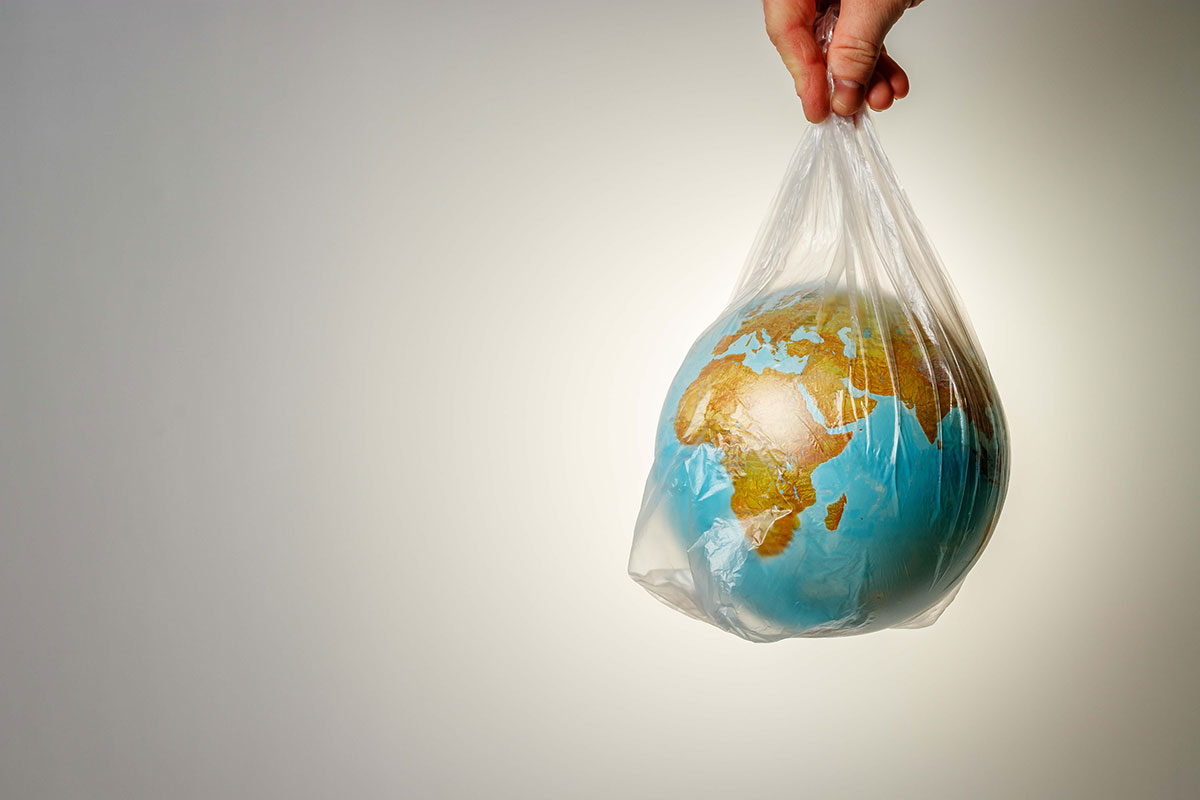Posted on 30th January 2019 by Hintons
 Plastics — and their impact on the environment — has been a hot topic for a while now. As a society, we’re becoming more and more aware of the issues surrounding wide scale plastic use, and this will only help us move forward and change things for the better. But, while there’s a lot of talk about how we should be using fewer plastic products, exactly why is plastic so harmful? In this article, we’re going to look at some key reasons.
Plastics — and their impact on the environment — has been a hot topic for a while now. As a society, we’re becoming more and more aware of the issues surrounding wide scale plastic use, and this will only help us move forward and change things for the better. But, while there’s a lot of talk about how we should be using fewer plastic products, exactly why is plastic so harmful? In this article, we’re going to look at some key reasons.
Plastics take hundreds of years to decompose
Plastic products — particularly single-use plastics such as bags and straws — don’t fully degrade, and remain in the environment for hundreds (or even thousands) of years. Instead of fully degrading and being naturally absorbed back into the environment , most plastics will only break down little by little, casting off small pieces of plastic into the environment, where it can be ingested by wildlife.
This process can also lead to the pollution of groundwater sources as well as rivers and streams.
Plastics are affecting our oceans
An alarming aspect of plastic use, and one that we’re only just becoming fully aware of, is the damage plastic is causing to our oceans. Whether you’ve heard it from Sir David Attenborough, the media at large, or you’re just reading about it here, the toll that plastic is taking on global marine life is undeniable. Approximately 150 million metric tonnes of plastic are currently in the ocean, and we are producing more and more of it each year, meaning our oceans — and its inhabitant marine life — are being choked by the plastics we throw away.
Ocean-dwelling creatures are being killed by stray plastic floating in the water, as well as by plastic fragments they mistake for actual food. Plastic particles are ingested by marine life, and as we produce more single-use plastics, this problem will only become worse.
Plastic can also be found washing ashore — sometimes years after being dumped in the ocean. Its durability as a material means it’s near impossible to remove from the environment, and can have a striking impact on once clean, pristine natural beaches across the globe.
What plastics can be recycled?
Only nine percent of all plastic produced is recycled, and many people simply throw away plastic products which are, in fact, recyclable. The single-use nature of many plastics, which has ushered in a ‘throw away’ culture, is part of the problem, but perhaps the most influential issue is the confusion behind what can be recycled — and where to recycle these materials.
In England, each local council handles their own recycling system, meaning what can and can’t be recycled changes between jurisdictions. This system invites confusion. In Wales, for example, things are more standardised, with councils offering the same recycling services across the country.
Some plastics are easy to recycle across England. Bottles — including water, milk and shampoo bottles — can be collected from your doorstep across 99% of areas. However, things such as carrier bags, cling film, plant pots and black plastics are only collected in less than 25% of areas. Without a standardised system, people are left wondering whether their plastic waste can be successfully recycled at home.
Of course, you can always check your local council’s guidelines regarding recycling collections, however introducing a fundamental clarity to this process would make plastic recycling easier for everyone to understand.
What can we do to reduce plastic consumption?
By reducing the amount of plastic we use each day, we can help to cut demand and enforce change. Recently, plastic bans have been discussed, targeting single-use plastics in commercial settings.
From a personal standpoint, you can cut down on plastic consumption by following this lead, and refusing to buy or use single-use plastic such as plastic straws and disposable coffee cups. Find alternative products which don’t rely on plastic packaging — around 40% of plastic usage is due to packaging — and try to educate others about plastics and how harmful overconsumption can be.
At Hinton’s Waste, we provide efficient plastic recycling services for clients across Croydon, London and the surrounding areas. We aim to recycle at least 90% of the plastic we receive, and our expert team is on hand to help you figure out if your plastic waste can be recycled instead of thrown away into a landfill. To find out more, get in touch with us today.
